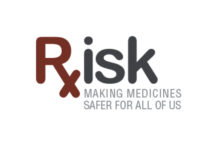The Taper
Part of what has scared me straight about ever starting a patient on an antidepressant (or antipsychotic or mood stabilizer) again is bearing witness to the incredible havoc that medication discontinuation can wreak. I am half way through the first e-course of its kind (on withdrawing from psych meds), and it has been incredibly well-received. There are so many people out there, disenfranchised by psychiatry, skeptical of its promises, and who want a better way, a more thoughtful assessment of them as whole persons. We seem to be onto something here, so let’s keep the dialogue flowing, keep our eyes wide open, and reform what psychiatry means, one patient at a time.
RxISK Stories: Withdrawal from antidepressants – V’s story
I quit taking Prozac using a step-down method. Started in Sept. 2011 and finally off in January 2012. I experienced severe loss of balance early on, which progressed into full-blown ataxia & parasthesia. Have had extensive blood-testing & MRIs of brain & cervical spine, all negative! I have to believe this is a result of coming off Prozac, although most sites say the withdrawal side effects don't last this long.
A Tale of Two Studies
With increasing evidence that psychiatric drugs do more harm than good over the long term, the field of psychiatry often seems focused on sifting through the mounds of research data it has collected, eager to at last sit up and cry, here’s a shiny speck of gold! Our drugs do work! One recently published study on withdrawal of antipsychotics tells of long-term benefits. A second tells of long-term harm. Which one is convincing?
How Long Does Antidepressant Withdrawal Last?
The patient experiencing the pain of withdrawal believed that they would feel better when they stopped taking their antidepressants. After all, they’re under the care of a board-certified medical professional who has vowed to do no harm. But despite those reassurances, they find themselves in a world of hurt.
Peer-Support Groups Were Right, Guidelines Were Wrong: Dr. Mark Horowitz on Tapering Off Antidepressants
In an interview with MIA, Dr. Horowitz discusses his recent article on why tapering off antidepressants can take months or even years.
Antidepressants, Pregnancy, and Autism: Really Time to Worry
On Monday April 14th, an important new study from Harrington et al was published in the journal Pediatrics (the official journal of the American Academy of Pediatrics.) The study was designed to examine prenatal use of selective serotonin reuptake inhibitors (SSRIs) and the risk of autism spectrum disorders (ASDs) and other developmental delays (DDs). Nine hundred sixty-six mother child pairs were studied and the researchers found that in boys, the association between maternal SSRI use in the first trimester and autism was very strong (OR 3.22). The association between third-trimester maternal SSRI use and developmental delay was even stronger, with an odds ratio of 4.98.
Fear and Belief in “Chemical Imbalance” Prevent People from Coming Off Antidepressants
Researchers interviewed people who were given medical advice to discontinue antidepressants.
Benzodiazepine Use and Risk of Alzheimer’s Disease
If a person in mid-life is feeling anxious, or depressed, or can't sleep? No problem. No need to figure out the source of these concerns. No need to work towards solutions in the old time-honored way of our ancestors. Today, psychiatrists have pills. Pop a benzo! And by the way, you'll have a 40% increased risk of Alzheimer's Disease in your late sixties.
Autism, Antidepressants, and Pregnancy: The Basics
This month, the seventh study and eighth study came out on the topic of antidepressant exposure during pregnancy and autism. And these studies showed, as essentially all of the others have, that antidepressant use during pregnancy (principally with selective serotonin reuptake inhibitors or SSRIs) is associated with autism in the exposed children. With so many children being diagnosed with autism and so many women taking antidepressants during pregnancy, everyone wants to know: are these things (the antidepressants) associated with autism or not? Quite frankly no one has the time to read through all eight scientific papers (and dozens more animal and basic science studies) to understand this important area, so I will do my best to briefly summarize it here.
Antipsychotic Drug Associated with Potentially Fatal Skin Rash
The US Food and Drug Administration is warning the public that the antipsychotic medication ziprasidone "is associated with a rare but serious skin reaction...
Antipsychotic Dose Reduction Linked To Long-term Improvements In First-Episode Schizophrenia Patients
Careful reductions in dosage levels of antipsychotic medications over time improved long-term rates of recovery and functional remission in patients diagnosed with a first-episode psychosis.
Mental Health Survival Kit, Chapter 4: Withdrawing from Psychiatric Drugs (Part 5)
Withdraw from psychiatric drugs at your own speed—according to what you feel. Don’t reduce again before you feel stabilised on the previous dose.
The Bitterest Pills: The Troubling Story of Antipsychotic Drugs
As I see it this website is about filling the gaping hole in the official literature on mental health problems and their treatment. Since these problems were declared to be diseases, ‘just like any other’, academic papers present them as if they were simply technical glitches in the way the brain or mind works. They can be identified by ticking a few boxes, and easily treated by tweaking the corresponding defect with a drug or a few sessions of quick-fix therapy. What it is like to experience these problems and their treatments is nowhere to be found. Yet in post after post on this site among others, we hear about the harm produced by drugs that are prescribed for mental health problems.
Tardive Dyskinesia in the Atypicals Era: Is The Risk Any Less Today Than Before?
A few weeks ago, while I was at a birthday celebration, a friend who works in a mental health setting remarked that she was...
New Study Examines Successful Discontinuation of Antipsychotics
A new study to be published in the next issue of Schizophrenia Research examines patients suffering from a first-episode of psychosis who stop taking any antipsychotic drugs. The researchers attempt to identify variables that can serve as predictors of the successful discontinuation of antipsychotics. They find, for example, that those who discontinue the drugs have, on average, the same outcomes as those who stay on them, and that those who have better social integration are more likely to discontinue without relapse.
Doctors Rarely Warn about Benzo Withdrawal
The Boston Globe interviews people who became ever more severely dependent on sedating benzodiazepines without realizing it, because as they tried to stop taking...
A Massachusetts Benzo Bill That Mandates Informed Consent
H. 3594 would require pharmacists to distribute pamphlets containing information on benzodiazepine misuse and abuse, risk of dependency and addiction, handling and addiction treatment resources. This would be a major legislative response to the prescribing patterns for these drugs today.
What You Need to Know Before Starting a Drug for a Mental Health Problem
In a belated new-year blog, I thought it would be useful to set out what I think someone needs to think about if they are considering taking a drug for a mental health problem, especially if they think they might end up taking the drug for a long time. These are the questions you might want to ask your doctor if you take a ‘drug-centred’ approach to the use of drugs in mental health.
SSRI Withdrawal has Social, Cognitive, and Emotional Consequences
New research finds that the non-physical aspects of withdrawal from SSRIs are often overlooked.
PTSD and Antidepressants Linked to Diabetes
A JAMA Psychiatry study found links between PTSD, type 2 diabetes, and antidepressants.
SNRIs Added to the List of Drugs with Potential Withdrawal Symptoms
New research suggests that clinicians should exercise caution prescribing SNRIs as first-line treatment for mood and anxiety disorders.
Researchers: Antidepressant Withdrawal, Not “Discontinuation Syndrome”
Researchers suggest that the pharmaceutical industry had a vested interest in using the term “discontinuation” in order to hide the severity of physical dependence and withdrawal reactions many people experience from antidepressants.
New Study Examines User Experience of Discontinuing Psychiatric Medications
Researchers find that support and self-care were helpful for users during discontinuation, but that mental health professionals were not very helpful.
Prenatal Antidepressant Exposure Raises Risk to Newborn of Pulmonary Hypertension
Researchers from Canada find the risk of persistent pulmonary hypertension of the newborn is increased for infants exposed to SSRIs in late pregnancy. Results...
Antidepressant Withdrawal: A Psychiatrist’s 30-Year Challenge to Conventional Wisdom
For thirty years, Dr. Giovanni Fava has sounded the alarm on the long-term effects of antidepressants and the risks of withdrawal, pushing back against pharmaceutical narratives.























